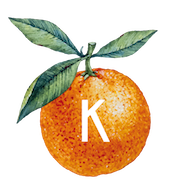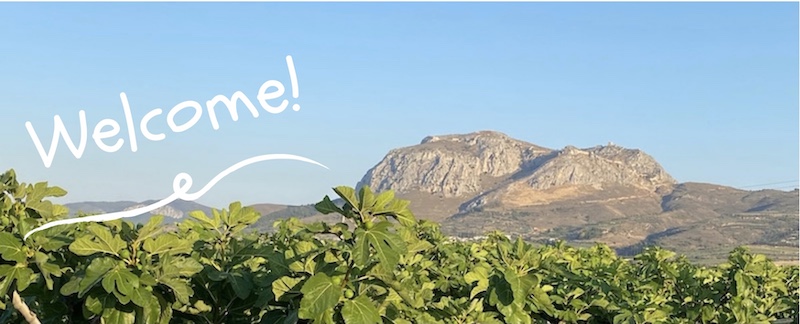
Just under the rock of Acrocorinth, amidst a sea of conventional grape monoculture plantations is a mosaic of small-scale organic farms.
Being one of the first regions of Greece where mechanized conventional agriculture took hold we are now farming in marginal circumstances. In Greece, only 1% of arable land is organic. And the austerity measures still affect 99% of the country population.
n Greece, organic farming is only 4% of total arable land, probably around 5% in the Corinth area, including pasture and olive growth and vegetables. We could not negotiate with the large traders who were used to not even discussing the price. The farmer was like a shipwrecked person in a sea of sharks. He had no say at all.
In Greece, late stage capitalism is testing new ways to create cheap and flexible labor forces. But we are testing new ways to resist, and to improve our conditions as dignified human beings.
This starts with preserving our food systems and natural resources, also to secure minimal social justice. In the area of Corinth we – a dozen of young and old organic farmers – have started a solidarity export project. A firm if undersized response to Greek economical situation. A response that can only be undertaken hand in hand with our customers abroad, as solidarity is key to the global crisis.
We are a network of a dozen of young and old, small scale, low impact farmers. We cultivate ;organic produce all year round. We also collectively process the fruit of our labour in a natural way, to produce lemonade, olive oil, grape syrup, raisins, sun-dried tomatoes, tomato sauce, tahini, herb tinctures and more…
Our intention is to cultivate in a just and fairway, respecting ourselves and the earth and provide a living soil to the next generation.
Why we started working together
Having collectively tried all know ways to sell our organic produce for over two decades we have learned in our mind, body and soul that intending to cooperate, being respectful to ourselves, others and our surrounding life is the only way we want to live and how we want to act and work.
After one of the major actor on the organic market plummeted in 2006, followed by the 2008 economic crisis, we all tried many different approaches to distribution channels but we were unable to sell all our produce.
How all this affected us personnally and socially
One of the necessary lessons of farming is failing. Learning to live with failure and loss and to continue effort in faith. As individuals we came to this cooperation having in part digested our depressions, fears and failures knowingly seeking strength in cooperation.
What does Cooperating Farms mean to us
Koinobio was a one way road for us.
We had to reach a point of deep disappointment to awaken inside our body, mind and soul the need for cooperation and empathy. We realized that on our own we were too vulnerable whereas as a group we were stronger. We understood that the cooperation is the antidote we were looking for. Already at a personal level we were helping one another but we knew we had no other choice but to also work all together. We were all people who cared about our farms and our produce. At that point Andonis, the younger member of our group joined us from Thessaloniki. He was full of energy and ignorance of dangers. He realized that to survive as a farmer, the older generation which had lost its footing would also need to survive. It would either be all together or nobody.
Initially we started working with a basket in Athens called “Corinthian Orchard” selling directly to eaters. We also cooperated with many new social networks in Athens. We witnessed and cooperated with many great groups which however did not stand the test of time and faced organizational challenges. It was clear that farmers could only survive through Community Supported Agriculture, as promoted by Urgenci‘s international network of CSAs worldwide.
We also realized that we had a greater responsibility to defend the proper cultivation of the land and obtaining a fair price for farmers. We learned the importance of proper organization.
How Solidarity exports brought us together
At that point in 2017 through some trusted relationship we shared the first call for Solidarity Exports while organising the 3rd Urgency CSA Symposium, that was to take place in Thessaloniki in November 2018. The idea was, rather than counting on a failing Greek markets with prices not worth cultivating, to create a price structure based on fair price for the producer, find groups outside of Greece to import our produce and start establishing trust and durable relationship based on understanding each other’s world.
We then met our first eater groups in Brussels (Belgium) and France, with whom we had been organising citrus deliveries for over a year, at this Symposium in 2018. They remain to this day our main supporters.
Meanwhile, Andonis had started working at Radiki, a local packaging company for organic fruit export. There he learned a lot about organising fruit exports, so much so that in 2019 Koinobio was finally officially created!
Benefiting from those strong relationships through individuals who became not only our contacts but our dear friends, we saw our skies brighten gradually, as substantial and regular income came into our accounts.
We could now start thinking about how we could elaborate on this by including other organic farmers in need, making development and investment plans for our farms, giving another try at the Greek market etc.
Confidence in the future has returned, even in spite of thousands of questions remaining unanswered, issues still pending, and day-to-day problems to solve. That’s what Solidarity Exports brought us: a sweet taste of not being left alone, a renewed desire to work together, and a thousand unforgettable moments of shared friendship.
Legal documents & Organic Certications
Lorem ipsum dolor sit amet, consectetur adipiscing elit. Ut elit tellus, luctus nec ullamcorper mattis, pulvinar dapibus leo.
